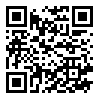BibTeX | RIS | EndNote | Medlars | ProCite | Reference Manager | RefWorks
Send citation to:
URL: http://irjns.org/article-1-9-en.html
2- MD, Resident of Neurosurgery, Neurosurgery Department, Poursina Hospital, Guilan University of Medical Sciences, Rasht, Guilan, Iran.
3- MD, Professor of Neurosurgery, Guilan Road Trauma Research Center, Guilan University of Medical Sciences, Rasht, Guilan, Iran.
Background & Aim: Using pharmaceutical agents in treatment of aphasia has caught the attention of many neurologists and neuroscientists. This short review study has sought the role of pharmacotherapy in treatment of aphasia, a linguistic impairment after acquired brain lesions. The pharmacological principles and mechanisms related to the effects of drugs used in aphasia rehabilitation are pointed. Then, some evidence of clinical trials on different drugs in this field is presented. Methods & Materials/Patients: A comprehensive search in databases including MEDLINE, Cochrane, PubMed, Scopus, EMBASE, Science Direct on experimental studies and clinical trials associated with pharmacotherapy of aphasia after neurological damages was performed. Results: Pharmacological interventions through manipulating neurochemical levels in synapses, the pre- and post-synaptic spaces and even inside neurons start to modulate the disturbed balance of neurotransmitters due to brain lesions. Pharmacotherapy is based on the principle that drugs via balancing the molecular signaling cascades triggered due to neuronal damage can restore the function of neurons, facilitate the brain plasticity process and improve the linguistic deficits in aphasic patients. Among the drugs that have been studied in treatment of aphasia, those acting on central cholinergic and glutamergic systems were more effective and led to better clinical outcomes. Conclusion: Although existing evidence has proved the pivotal role of pharmacotherapy in treatment of aphasia after acquired brain lesions in adults, further research is required to assure the clinicians in using pharmacotherapy as a standard approach in treatment of aphasia.
| Rights and Permissions | |
 |
This work is licensed under a Creative Commons Attribution-NonCommercial 4.0 International License. |






